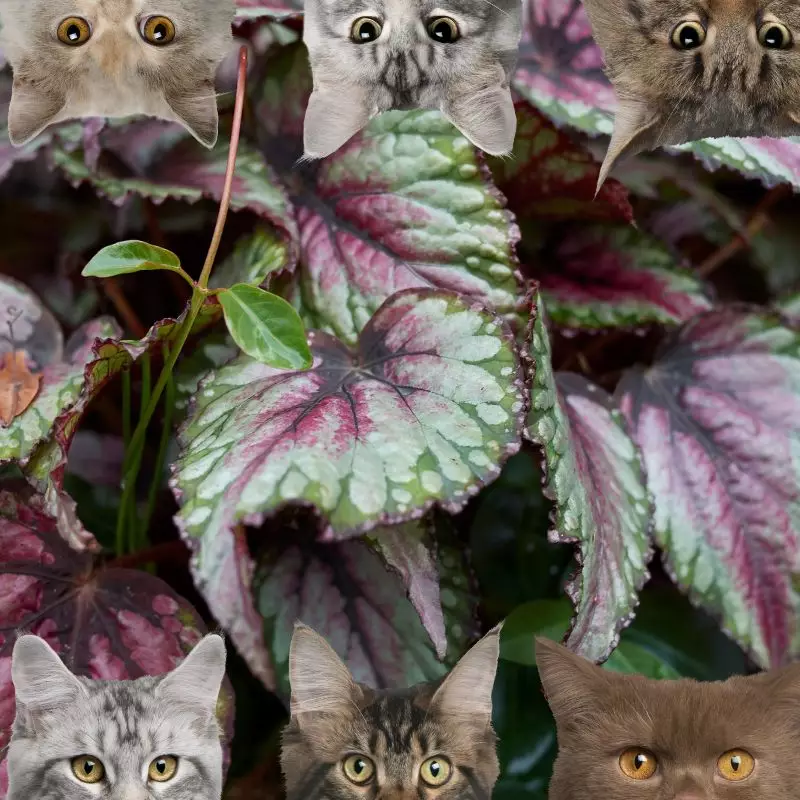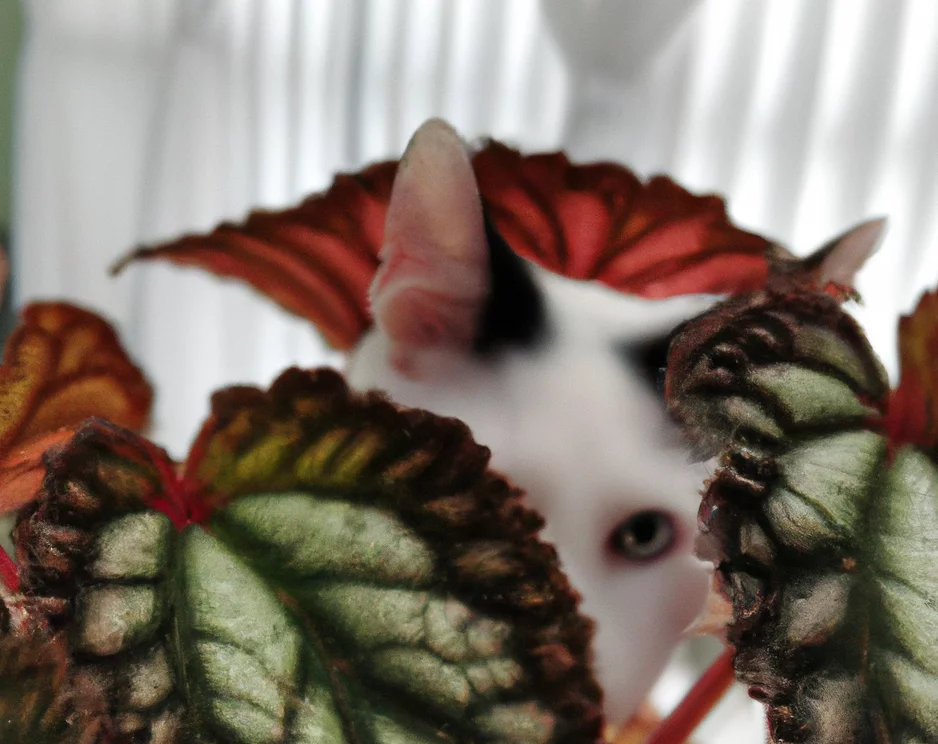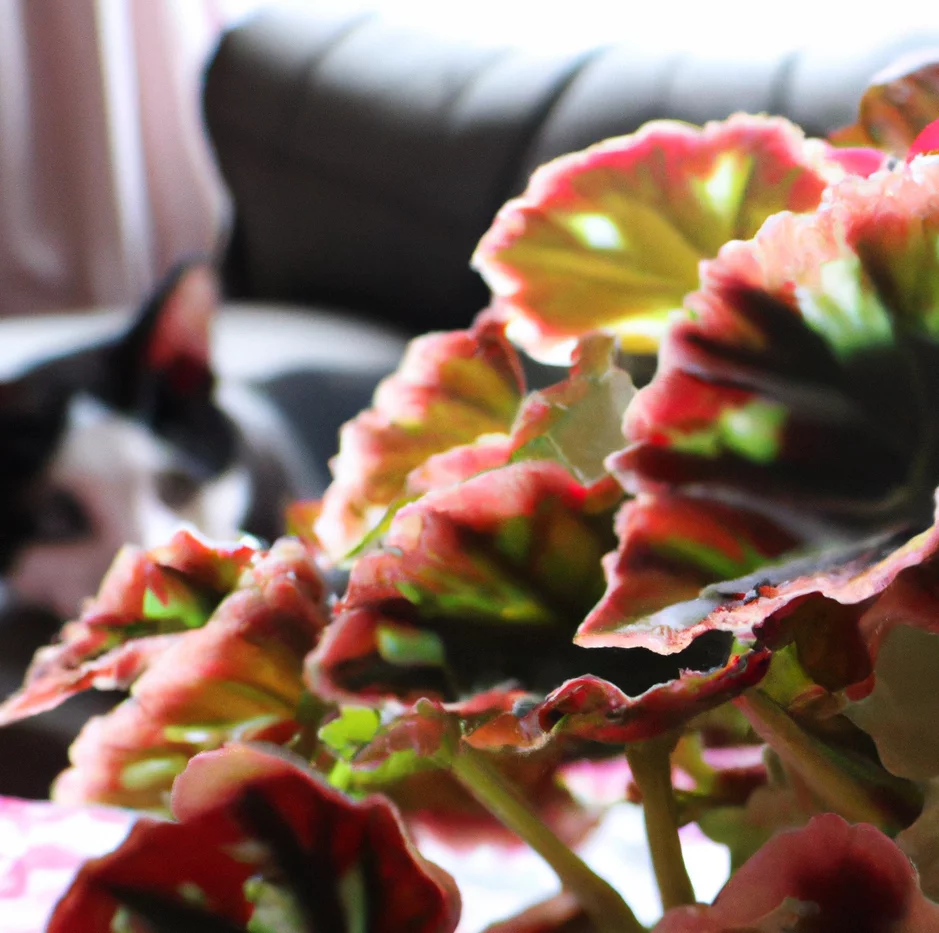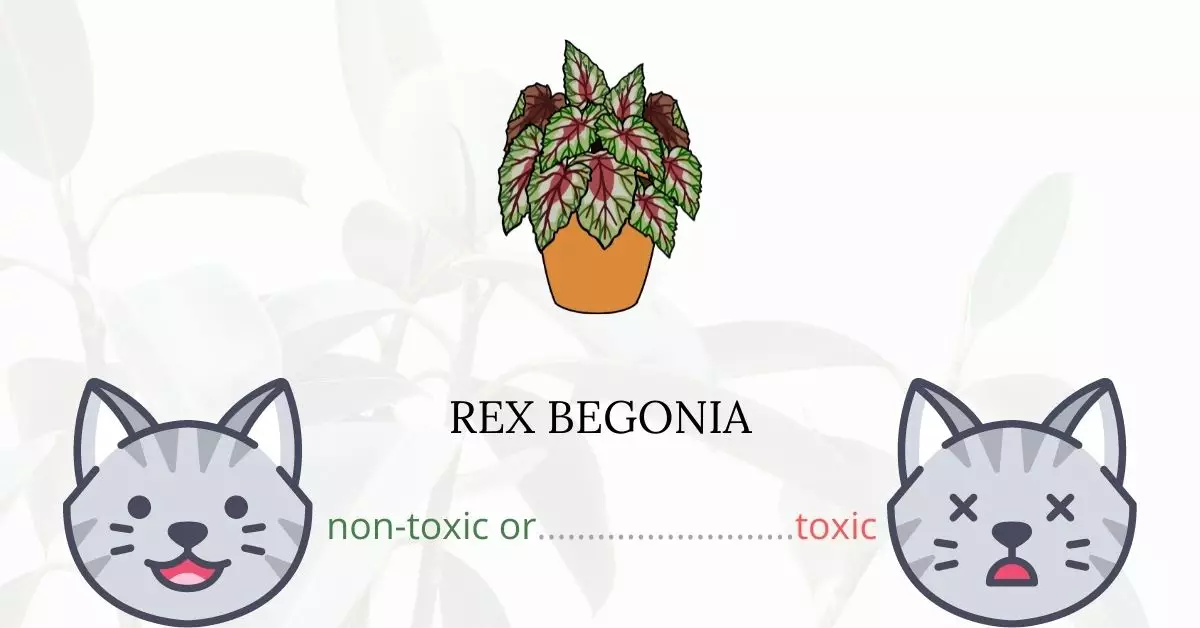Cats indeed need to steer clear of Rex Begonia as it is recognized as toxic to them. The Rex Begonia plant is laden with soluble calcium oxalates, primarily located within the juice of its stems, leaves, and flowers, which pose substantial risks to a cat’s health if ingested. Particularly, the roots of the plant are highly dangerous, containing microscopic needle-shaped crystals in their fluids and sap that intensify its toxic properties.
This article is a culmination of rigorous research and has been written in collaboration with a team of seasoned Doctors of Veterinary Medicine (DVMs). Their invaluable insights and extensive experience have enabled us to furnish accurate and up-to-the-minute information about the potential hazards posed by various plants, including Rex Begonia, to cats. To further validate the reliability of our information, extensive research was conducted utilizing high-authority websites such as ASPCA and PetMD to ensure the provision of the most accurate and reliable information on each plant discussed. Through the integration of expert advice and credible resources, we aim to educate and create awareness about plant toxicity and its repercussions on cat health.
Clinical Signs of Rex Begonia Poisoning in Cats

Rex Begonia, while usually not lethal, can elicit a series of prominent clinical symptoms in cats due to the presence of soluble calcium oxalates in the plant. If your cat has been in contact with, has smelled, or, more seriously, has ingested this plant, prompt and immediate veterinary attention is imperative to prevent severe complications.
- Excessive Salivation: This occurs as a direct response to the irritation caused by the plant’s crystals, leading the cat’s body to produce more saliva in an attempt to alleviate the discomfort.
- Oral Sores and Redness around the Mouth: The microscopic needle-shaped crystals can cause physical damage and irritation to the mouth’s soft tissues, manifesting as sores and redness.
- Swelling of the Mouth and Tongue: The irritation and inflammation from the plant’s toxins lead to swelling, as the body’s natural response is to send more blood and immune cells to the affected areas.
- Licking the Lips and Grimacing: These are clear indicators of oral discomfort and pain, as the cat is attempting to soothe the irritated areas.
- Vomiting: This is a bodily reaction attempting to expel the ingested toxic elements of the Rex Begonia from the system.
- Dehydration: Vomiting can lead to a loss of fluids and electrolytes, causing dehydration if not addressed promptly.
- Inability to Swallow: The swelling and irritation in the mouth and throat can make swallowing painful and difficult.
- Refusal of Food and Water: Due to the pain and discomfort associated with swallowing, cats may refuse to eat or drink.
These signs are indicative of Rex Begonia poisoning, and immediate veterinary intervention is crucial to administer appropriate treatment and management, reducing the risk of prolonged discomfort or more serious health implications for your cat.
First Aid and Treatment of Rex Begonia Poisoning in Cats

The majority of begonia poisoning instances are minor, and they go away on their own in about 48 hours. However, the veterinarian may recommend a liquid-only diet, which is easier on the stomach and helps remove any oxalate crystals that remain caught in the digestive system. To minimize throat swelling and preserve a clean airway, anti-inflammatories will be needed. Additional medicines may be needed to make the stomach contents more viscous and therefore preserve the stomach lining. Depending on whether dehydration has set in, fluid therapy may be necessary.
Recovery from Rex Begonia Poisoning in Cats

A severe case of begonia poisoning can be recovered in as little as two weeks, with no need for additional sessions. Because oxalate crystals lose their effectiveness quickly, your body’s oxalic acid levels will rapidly fall if you don’t eat more. This is wonderful news for cats and their owners because it means they will have less time to exercise and eat normally.
However, if the esophagus is severely damaged, the veterinarian may decide to place a feeding tube. This will prevent the cat from straining damaged digestive tract tissues by swallowing rather than allowing them to heal on a liquid diet.
Prevention of Rex Begonia Poisoning in Cats
To minimize the risk of getting poisoned, keep your plant out of the reach of the cat as long as they can’t get to it. Draw your cat’s attention away from plants by providing them with their own cat grass.
If you love plants but have cats at home, check out these lists:





